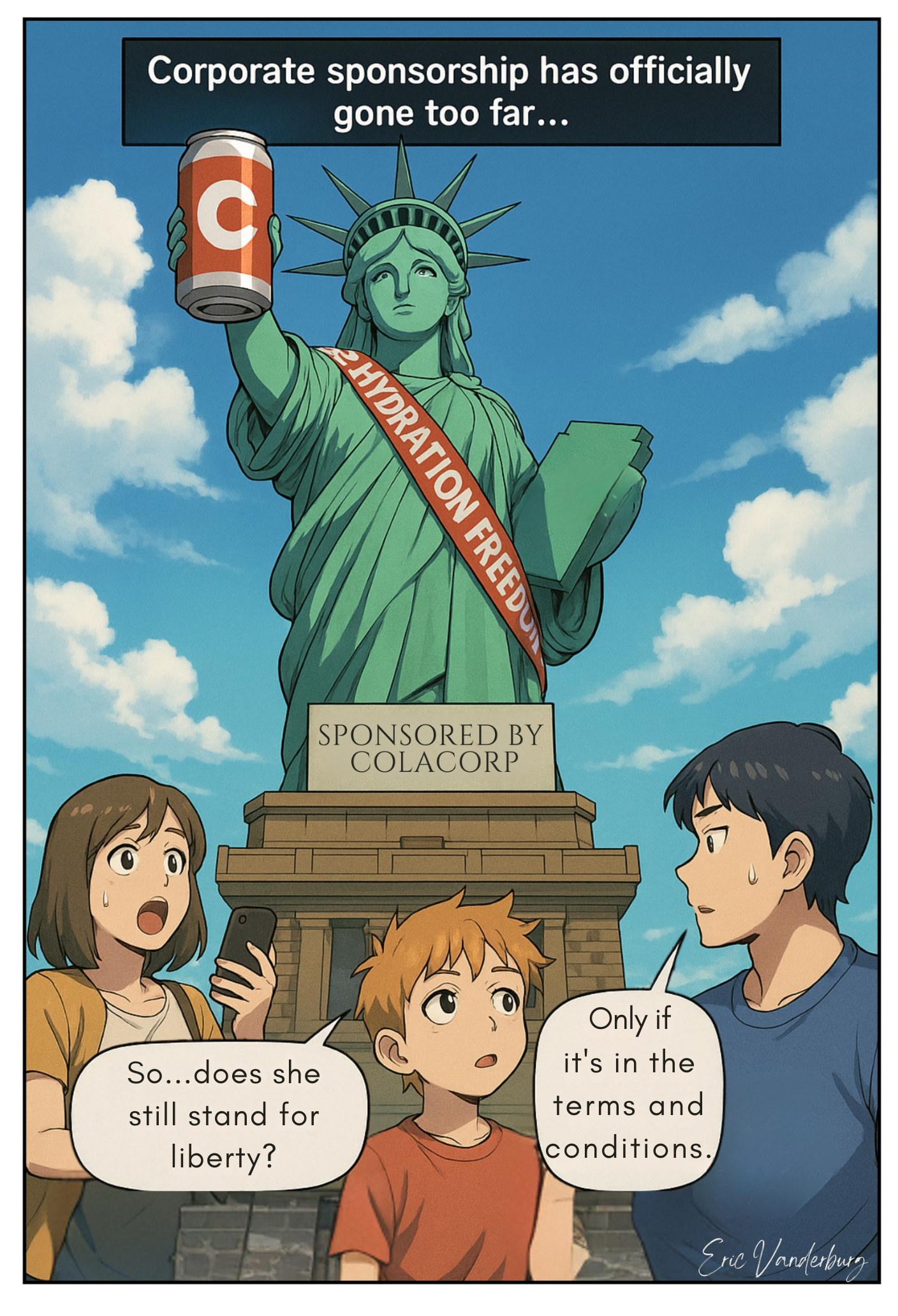Corporate Sponsorship Gone Too Far
Corporate sponsorship has escaped its natural habitat—the sports field—and now grazes freely across daily life. Once confined to stadium names and NASCAR decals, branding has quietly expanded into schools, parks, museums, and even public bathrooms. This evolution isn’t accidental. Advertising fatigue and subscription models have pushed marketers to find new, more intimate territory—our lived experiences.
Everyday moments now come with taglines. Your morning jog might take you past a “Planet Fitness 5K Route,” your city bike-share likely bears the name of a bank, and your local park Wi-Fi probably thanks a telecom company for making your picnic data-capable. Cities fund infrastructure through corporate partnerships; college buildings wear the names of soda brands; even NASA livestreams are occasionally “brought to you by” a sponsor. What began as a creative funding strategy has quietly become the default operating model of modern existence.
Entertainment, once a refuge, is fully integrated. Films seamlessly feature real brands as part of the story—James Bond drives an Aston Martin because the check cleared—and television scripts now accommodate “organic integrations” to keep the lights on in the streaming era. Influencers transform their morning routines into ad campaigns. Podcasts that open with heartfelt confessions about anxiety now pivot naturally into a promotion for better mattresses.
Even civic and cultural spaces are joining in. City bike programs are branded by Citibank, Barclays, or Santander. Public broadcasting relies on “underwriting” from insurance firms. Entire subway stations in New York and Tokyo have sold naming rights. A town in Texas even renamed itself “Dish” in exchange for free satellite TV service. It’s a practical, slightly surreal economy in which every surface, sound, and sentiment is available for lease.
The result is a society where authenticity itself carries a sponsorship logo. Your yoga class might be hosted by Lululemon, your mindfulness app supported by a meditation supplement brand, and your child’s soccer jersey adorned with the logo of an energy drink. These aren’t jokes—they’re the quiet mechanisms funding much of what we call “free.”
The irony, of course, is that this system works. Corporate sponsorship keeps Wi-Fi running in airports, supports local festivals, and funds city infrastructure. But it also means we’re living inside a 24/7 ad placement, starring as unpaid extras. We post our brunch photos to platforms owned by companies that sell ads against them, we attend “presented by” community events, and we consume news “in partnership with” brands. Even our exasperation feels pre-packaged—“That sigh of despair, proudly powered by your favorite coffee chain.”
It’s not dystopian—it’s Tuesday. A completely normal, reasonably priced, well-branded Tuesday.

Discussion ¬